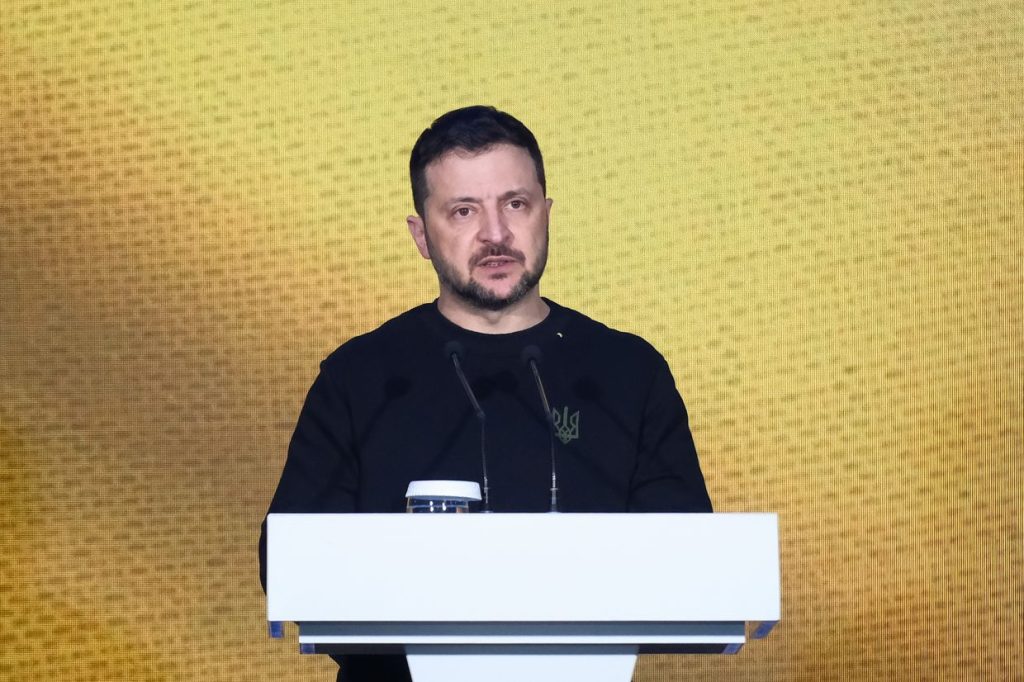Summarize this content to 2000 words in 6 paragraphs
President Volodymyr Zelensky slammed Hungary’s Prime Minister Viktor Orban on Dec. 11 following his hour-long call to Russian President Vladimir Putin during which the two discussed the war in Ukraine. The call occurred earlier in the day after Orban’s visit to Mar-a-Lago and meeting with U.S. President-elect Donald Trump. Orban said on X that the call with Putin lasted an hour. The prime minister also mentioned that these weeks are the war’s “most dangerous,” adding that the parties are taking “all possible diplomatic steps” to promote a ceasefire and peace talks.In response, Zelensky called for “not playing on one’s own image at the expense of unity” but “for the common success.” He added that discussions about the war in Ukraine cannot occur without its representatives.”It is absolutely clear that achieving real peace and guaranteed security requires American determination, European unity, and the commitment of all partners to uphold the goals and principles of the U.N. Charter,” the president added.”We all hope that Orban at least won’t call Assad in Moscow to listen to his hour-long lectures as well,” Zelensky wrote on Telegram, referring to ousted Syrian President Bashar al-Assad who fled to Moscow after rebels took over the Syrian capital Damascus on Dec. 9. Zelensky also thanked Trump and European leaders with whom Ukraine “is already working together to find the right and strong solutions for real peace.”Orban responded to Zelensky’s criticisms, claiming on X that Hungary had allegedly proposed “a Christmas ceasefire and a large-scale prisoner exchange” to Zelensky, but that the Ukrainian president had ruled it out. Hungary has retained warm diplomatic and economic ties with Moscow even after the Russian full-scale invasion of Ukraine in 2022, refusing to send military aid to Kyiv and vocally opposing EU sanctions on Russia, albeit eventually voting for every one of the packages.Hungary’s prime minister was the first EU leader to visit Putin in Moscow in July after taking the helm of the EU presidency despite Western attempts at isolating the Russian leader.As military options dwindle, US support is key to Ukraine’s peace talksUkraine is exhausted. Low on manpower, ammunition, and, most importantly, morale, the country is slowly reckoning with the fact that the ongoing war may be unwinnable on the battlefield — at least for now. According to a Gallup survey published on Nov. 19, 52% of Ukrainians now say they want their
!function (f, b, e, v, n, t, s) {
if (f.fbq) return; n = f.fbq = function () {
n.callMethod ?
n.callMethod.apply(n, arguments) : n.queue.push(arguments)
};
if (!f._fbq) f._fbq = n; n.push = n; n.loaded = !0; n.version = ‘2.0’;
n.queue = []; t = b.createElement(e); t.async = !0;
t.src = v; s = b.getElementsByTagName(e)[0];
s.parentNode.insertBefore(t, s)
}(window, document, ‘script’,
‘https://connect.facebook.net/en_US/fbevents.js’);
fbq(‘init’, ‘3189560391356472’);
fbq(‘track’, ‘PageView’);
window.fbAsyncInit = function () {
FB.init({
appId: 271541601613017,
cookie: true,
xfbml: true,
version: ‘v2.5’
});
}.bind(this);
(function (d, s, id) {
let js, fjs = d.getElementsByTagName(s)[0];
if (d.getElementById(id)) return;
js = d.createElement(s);
js.id = id;
// @ts-ignore
js.src = “https://connect.facebook.net/en_US/sdk.js”;
// @ts-ignore
fjs.parentNode.insertBefore(js, fjs);
}(document, ‘script’, ‘facebook-jssdk’));


